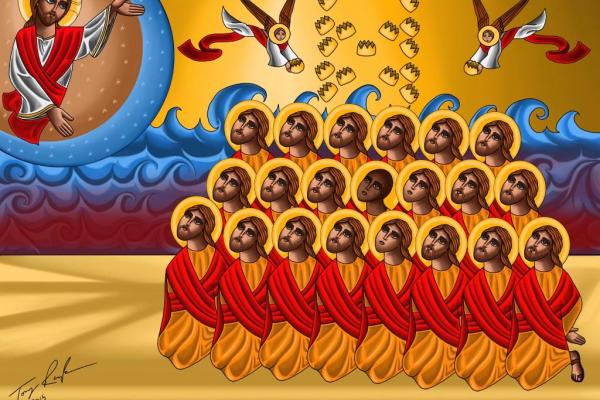Feb 15, 2021
Six years ago on Feb. 15, the world watched, horrified, as photos and videos circulated of the 20 laborers from Egypt and one from Ghana who were brutally executed by Daesh. The 21 Martyrs of Libya joined the ranks of thousands of Christians who came before them, whose stories of persecution they would have heard almost every time they went to church. Their modern Christian martyrdom stands in stark contrast to the largely imagined persecution trumpeted by the American Religious Right.
Read the Full Article

Already a subscriber? Login
